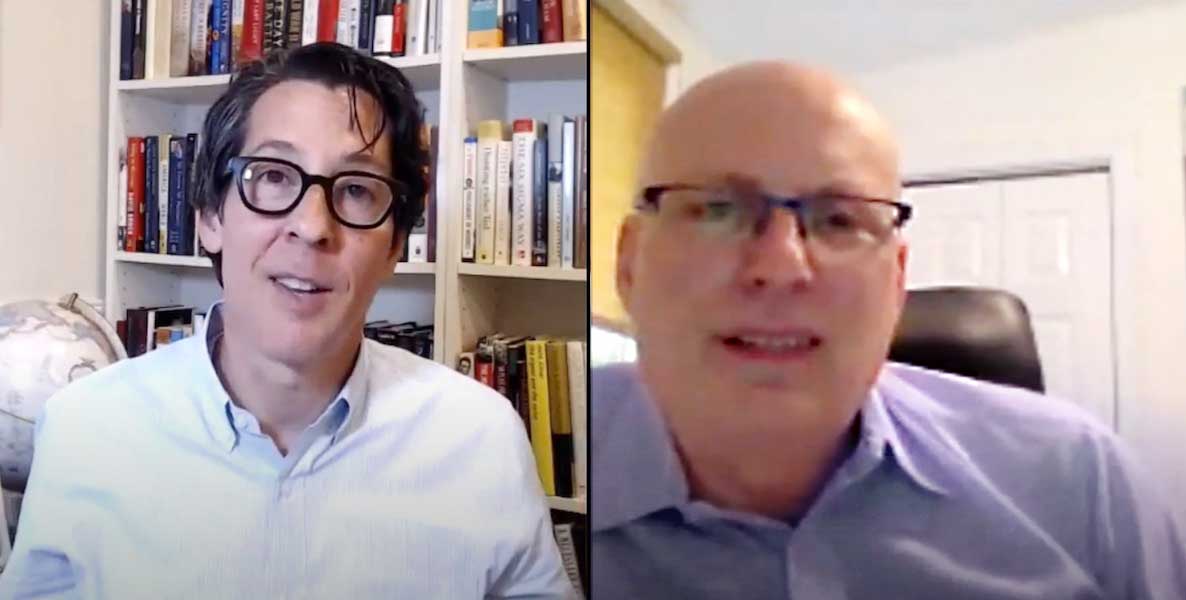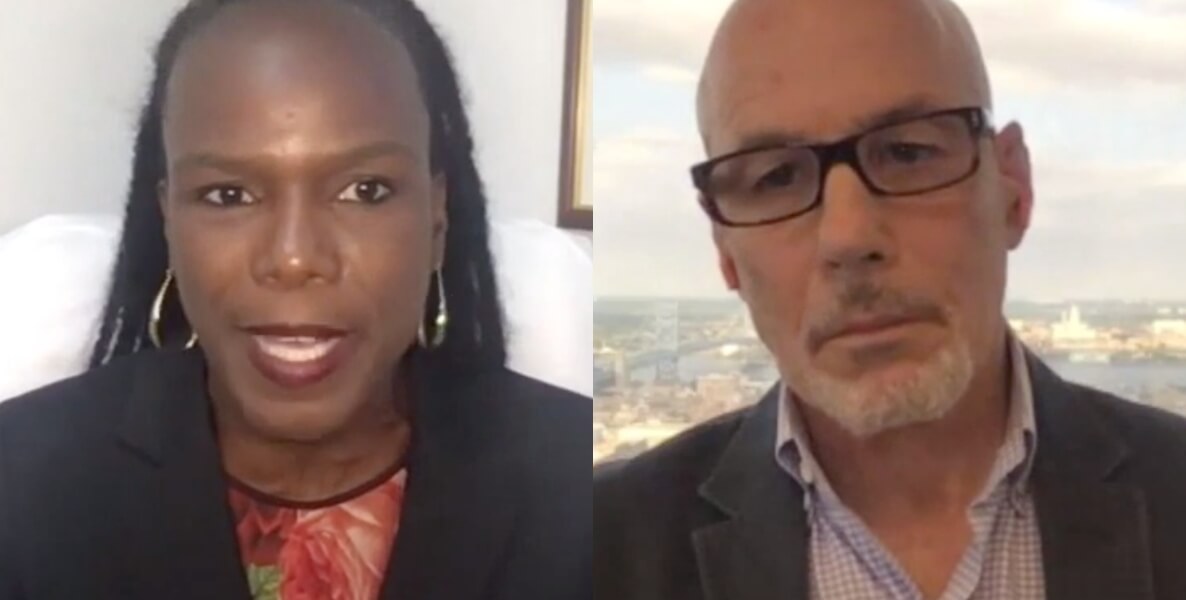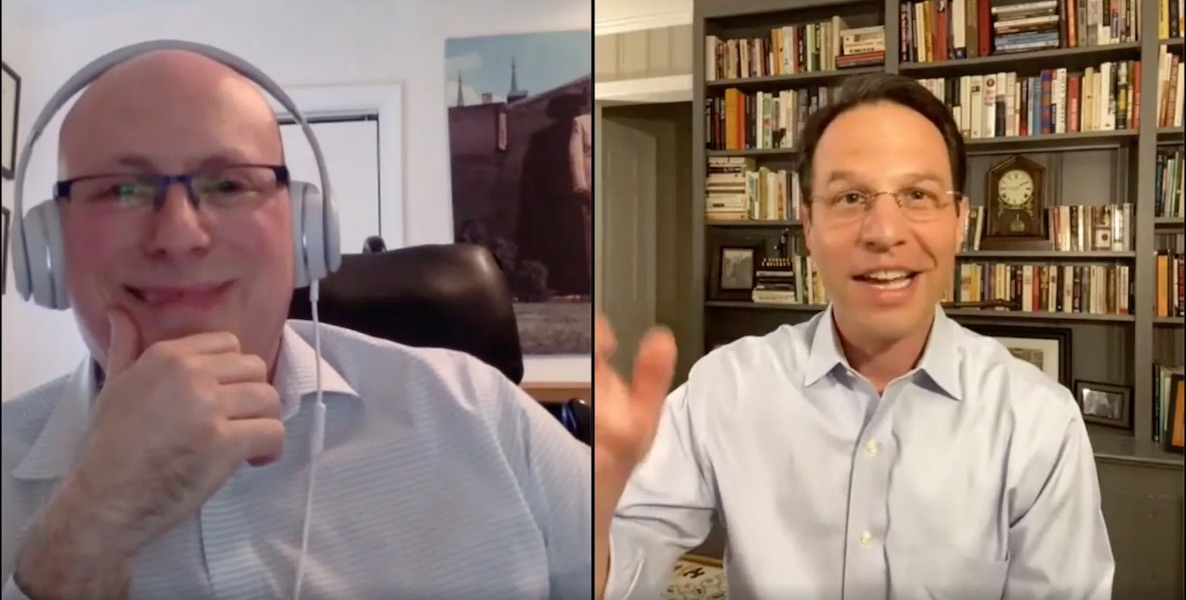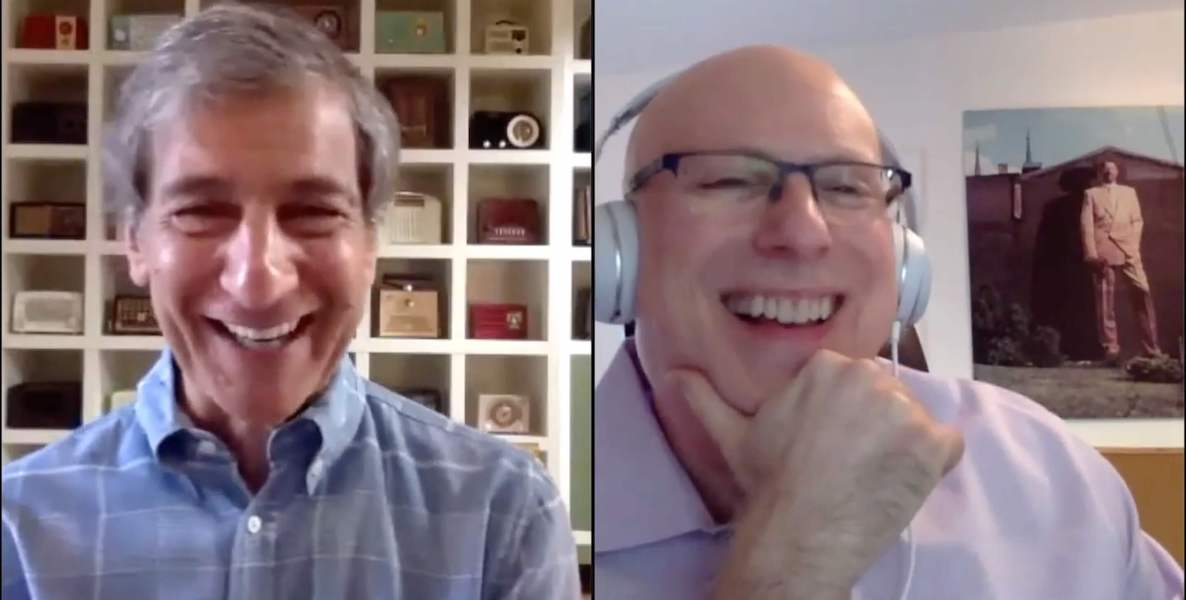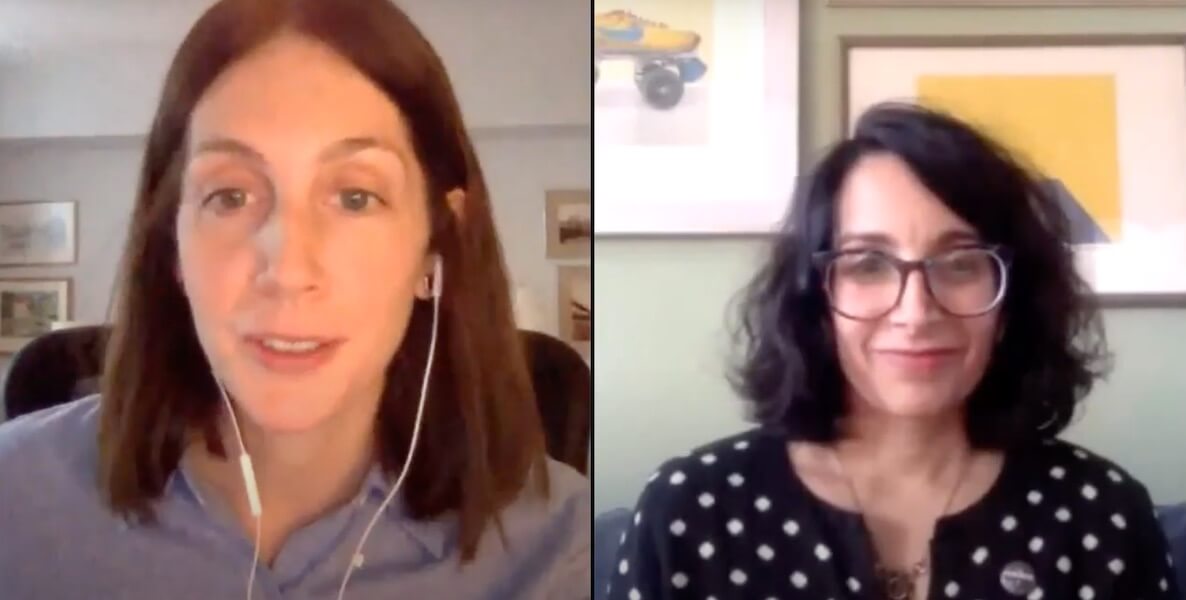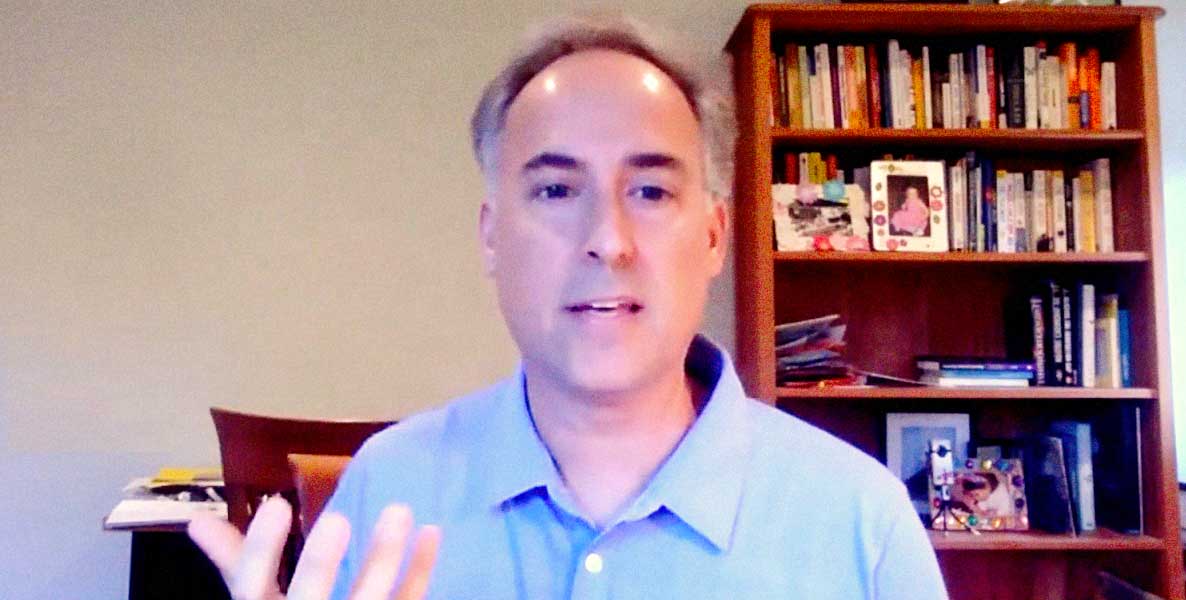Philadelphia is riddled with problems. We know this, of course—it’s what guided the creation of The Philadelphia Citizen and its focus on championing solutions.
In a fascinating conversation on Wednesday night between Citizen co-founder Larry Platt and Penn Medicine Chief Innovation Officer Roy Rosin, it became apparent to the nearly 250 guests in attendance that you can’t solve any problem—whether it’s reinventing razors or tackling the challenges of a pandemic—without asking the right questions, and corralling the right experts.
![]() “[People] can’t reveal to you the solution very often. You have to get deeply embedded and just see everything and see all the things that they can’t articulate or can’t remember or are not even aware of,” Rosin said. “Once you get that deep into what the problem is, you can generate a whole bunch of different directions.”
“[People] can’t reveal to you the solution very often. You have to get deeply embedded and just see everything and see all the things that they can’t articulate or can’t remember or are not even aware of,” Rosin said. “Once you get that deep into what the problem is, you can generate a whole bunch of different directions.”
Over the course of the hour-long event, Rosin made clear that he believes deeply in the potential for Penn Medicine—and the people who work there—to solve some of the biggest obstacles facing our city, including most recently when the Covid-19 pandemic hit.
“From the time I walked in the door at Penn eight years ago, what I found consistently were people who support the idea of making things better,” he said. “These are mission-driven individuals who want to make the world a better place.”
If you missed the chat, you can watch the full interview here (we’ve even edited out the technical glitches!). Or keep reading to find a handful of the many insightful takeaways we gleaned from the man Platt once dubbed the smartest person in Philadelphia you haven’t heard of.
1. He focuses on “how” not “can”
On innovating, Rosin said it’s more transformative to ask how can we do something, versus can we do this. When you ask the latter, you’re likely to get a no—but when you ask how, you open the door to progress. If that’s not a mantra we should all adopt, what is?
2. He’s got passion in spades.
It’s clear that passion and compassion drive Rosin’s work. Yes, he has a Harvard degree in economics, an MBA from Stanford and nearly two decades of experience in Silicon Valley under his belt. But the health care sphere is so clearly where he’s meant to be.
Just one example: When an event attendee asked Rosin for insight on how to improve doctor-patient communication, Rosin talked about the importance of finding the right doctor, making sure the time spent together is being used well, being part of a health care system where doctors use electronic consults during office visits to connect with specialists (and thereby fast-track the answer-getting process for patients).
And he acknowledged that there’s no silver bullet to solving the problem. When the questioner divulged that she personally lived with health issues related to a rare birth defect, he offered to talk to her after the event to help her find a Penn doctor who could help. It was a poignant moment, the likes of which you don’t typically see in online events with experts.
“I don’t want to oversimplify,” he said. “When you have a complex chronic disease […] it really takes a special person to work with you and work with you carefully. Luckily the clinicians I work with are these wonderful, mission-driven people who put in the nights and weekends to do that kind of thing. You find the right one, and great things happen. … [There are] people who are just brilliant physicians, and I’ll see if I can connect you with one of those people.”
3. No crazy ego here.
Rosin took advantage of every opportunity to credit his Penn colleagues and sing their praises, over his. It’s an admirable leadership trait, and one that Rosin might’ve picked up during the 18 years he worked at Intuit under the tutelage of legendary leaders like Scott Cook and the late Bill Campbell.
“Bill was an incredible leader, he was an incredible people person. And I think his success in some ways was because so much of business is about humans. Business is fundamentally human. […] Any one of us would’ve followed him up any mountain that he told us to charge. He made us feel special, he made us feel important, he paid attention to me before I deserved it,” he said
4. He’s not an early tech adopter.
He may have the word “innovation” in his title but, no, he doesn’t have every new gadget, or robots serving him meals at home.
“I’m like the last person to adopt new technology nowadays,” he said, conceding that he’s the only member of his team not on Slack. (“I probably drive my team crazy not being on it.”) But, as he explains in the video, an advantage to being somewhat of, well, a luddite:
“One of the things that I actually think helped me in Silicon Valley was my ignorance. I was willing to ask dumb questions. I’m willing to say when I don’t understand things. I frequently don’t understand things. But I try to think through them logically and try to make sense of it, and being a non-expert actually helps people who are truly experts to sometimes step back and say wait a minute, I’m seeing that through a new lens, I’m seeing that through new eyes,” he said. “Sometimes it is that ability to be a little bit behind that doesn’t harm you so much and it does sort of start an interesting conversation.”
And even though he doesn’t have the glitziest toys, he of course appreciates and celebrates technology. “I think technology is the only way we really scale innovation. It’s very hard to scale new things without technology underneath it. So I’m obviously a big fan of technology.”
5. He believes the word “innovation” is hackneyed.
“It’s probably the most overused word out there these days. It’s one of those words that because it now means everything, it means nothing,” he said. “I find myself being drawn more to terms like ‘creative problem-solving’ than innovation just because it is such a beaten-up, overused word nowadays.”
And he made clear that the way to creatively solve for any problem is to start by listening. Deeply.


